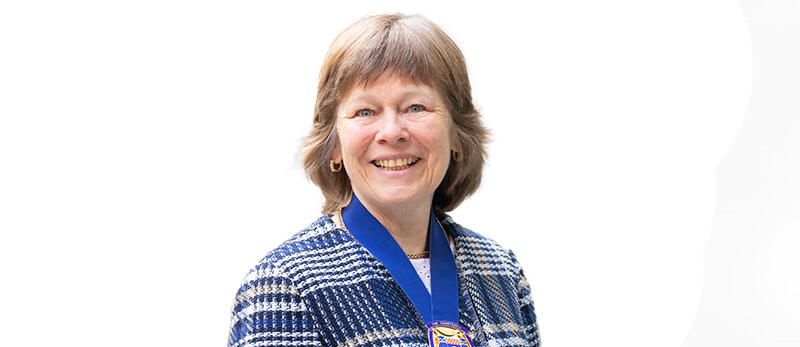CIOT President's page: Public education

Welcome to the July ‘President’s Page’. In the last few months, when considering the priorities to focus on as I became President, I had not expected that we would immediately find ourselves in the run up to an election and that most discussions with HMRC would be suspended during the period of purdah.
During the election campaign, there has been much talk about tax. That’s as it should be, as a key element of any government’s remit is raising money to fulfil its ability to govern and implement its policies. Perhaps more questionable is the quality of some of the debate about taxation. This brings to the fore the role of the CIOT because our charitable objects, as set out in our Royal Charter, include ‘to advance public education in and the promotion of the study of the administration and practice of taxation and the principles of economic and political science in relation to taxation’.
As a professional body constituted as a charity, we have to be mindful that charity law requires that we are not established for political purposes, and in representing members’ views as tax practitioners, the same need for independence and political neutrality applies. The Council has been revisiting, and fine tuning, how we meet the object of ‘public education’ because this is not cast in concrete. A new overarching public awareness strategy has been agreed with three audience sub-groups in order to help us prioritise and direct our efforts effectively: those with an interest in tax; unrepresented taxpayers who seek further specific tax information; and the wider public who need an awareness of tax.
Discussions were also held within the Council in early June about how we engage in an election, given that the Institute is apolitical. It’s a delicate balance because tax is intrinsically political but we can, and should, inform any public tax debate by explaining how taxes operate and providing factual information – often to help counterbalance some of the claims that appear. (I’m always surprised at how much some commentators think they may generate from countering tax avoidance!)
The Council agreed that our established ‘Rules of Engagement’ are appropriate and helpful. So as well as our technical experts being available to the media, we have produced a series of ‘explainers’ providing background and non-partisan explanations on the tax issues in the spotlight during the campaign. I commend our technical and external relations teams for these helpful explainers, which are now available on the website – and include topics such as tax and the state pension, national insurance and non-doms.
I found the recent joint CIOT/IFS debate on VAT on private school fees informative and thought-provoking, especially given that the topic tends to be emotive and views on it very ‘black and white’ – and plenty have told me in no uncertain terms what should be done on this! The debates are helpful in bringing together both the practical operational experience of CIOT members and the IFS’s macro-economic picture to inform a more rounded view.
Watch out for the next joint CIOT/IFS debates. On the morning of 16 July, there will be an online debate on tax priorities for the incoming government, and in the evening of 4 September another will take place in central London on the taxation of residential property.
At the start of the election campaign, I wrote to the finance spokespeople of each of the main parties to set out what we think should be priorities for the next government. These include the following seven aspects of tax administration:
- Resourcing HMRC to provide the level of service taxpayers need.
- Review tax digitalisation to focus it on the needs of taxpayers.
- Commit to meaningful simplification of the tax system.
- Get research and development tax credits working properly.
- Effective but proportionate action to tackle rogue tax agents.
- Greater transparency and accountability over policy costings.
- Adherence to sound tax policy making principles.
We’ve published the responses we’ve received so far on our website – tax.org.uk/election-2024 – and will be following up with ministers, shadow ministers and other spokespeople, as well as relevant parliamentary committees, when the new Parliament is formed. The need for good tax administration has never been greater – but, in the meanwhile, I trust you will enjoy the summer holiday period.


